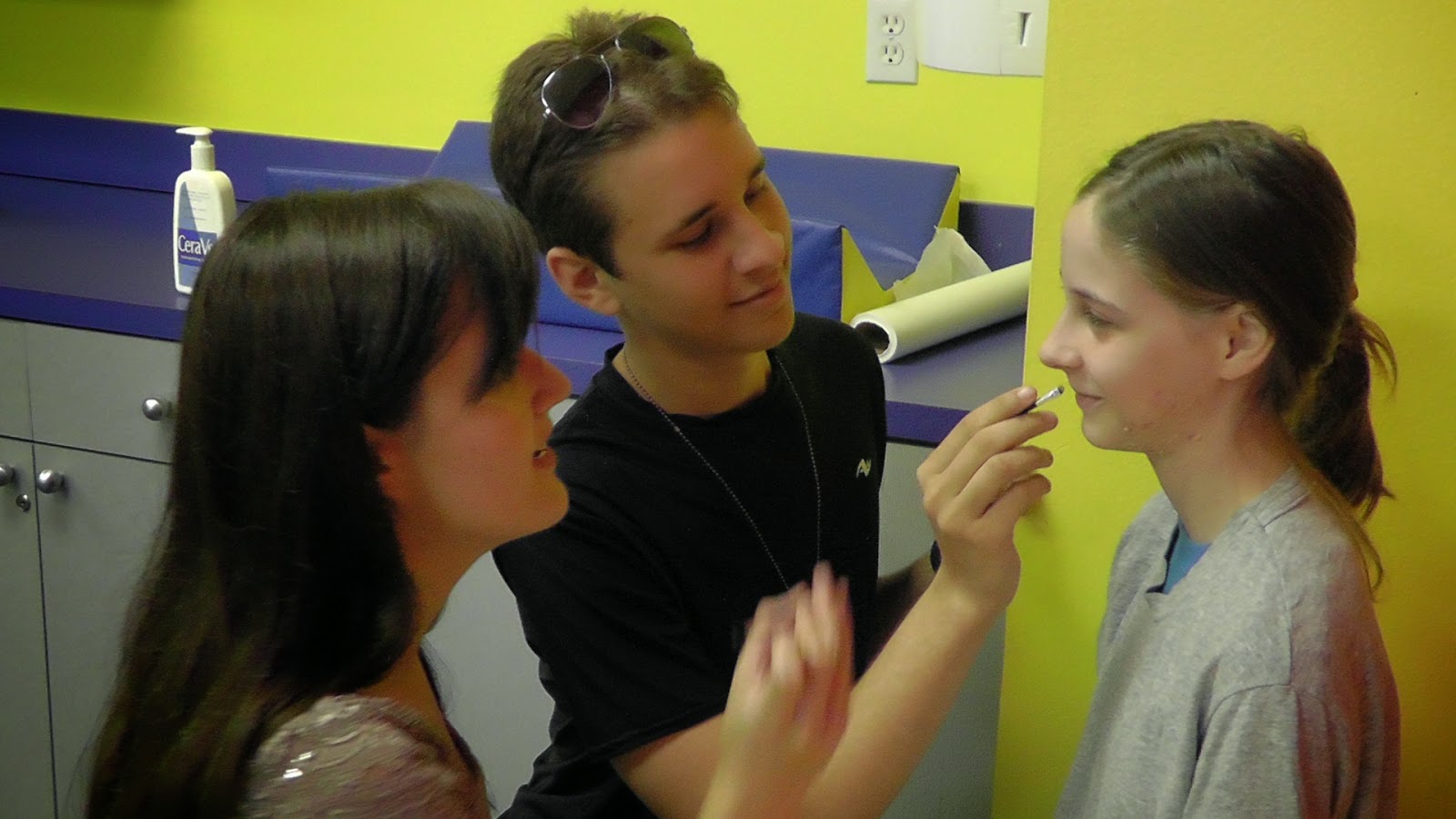The release of the Fifty Shades movie has opened up a lot of healthy discussion about abuse and abusive relationships.
I like actors, so even if this was a story I'd watch, knowing the actors making it were unhappy would feel like watching a film made at the cost of a thousand Humane Society commercials.
But here's the thing: the emotionally abusive and manipulative behavior in the 50 Shades story
is not confined to romantic relationships. It's afoot in filmmaking at large. I worked for a guy who bragged about bullying his actresses to hysterics. I should have quit right there. Instead I worked for months under a psycho, and I still don't know if he was intentionally trying to destroy me and make me quit the job, or if that was just how he worked with everyone.
I didn't stick up for myself,
even when I knew that behavior was wrong, because I wanted so badly to be working in my craft. I don't want other people to go through what I did.
You're worth more than that, and
you should never feel like you have to put up with emotional abuse to exercise your craft.
This is a really emotional subject for me, and going back to write this has been really hard. I'm sorry if this is disjointed.
Here are three ways to protect and stick up for yourself, because you are worth sticking up for.
1.
Recognize Abuse
A pattern in abuse and manipulation is that the abusive party will be extremely charming and complimentary and encouraging and build you up, and then
1) Cut off contact right after they get what they want out of you.
2) Become extremely rude and cold when you politely refuse a demand. ("Actually it's after midnight and I have another job early tomorrow morning [and you already fired me in the worst way].")
3) Ask you to be open and then berate you for it.
A director should never get angry at you for answering a question about your feelings.
Director: How are you feeling?
Me: Nervous.
Director: Why?
Me: I was worried I was fired.
Director: I CANNOT BELIEVE YOU I CANNOT PUT UP WITH THIS UNPROFESSIONALISM OH MY GOD DON'T EVER TALK TO ME LIKE THIS AGAIN, DO YOU UNDERSTAND.
It's crucial in a relationship regarding artistic work to have honesty and safety and that? That up there? That's psycho and damaging.
2. Set Boundaries
I worked with a director who used to call me at 9 at night and require rewrites within an hour. When I finished, he would call me again at midnight and ask me for something else.
This behavior continued after he fired me. Or, more specifically, after he did his typical not-talking-to-me-for-a-week thing and then let me find out I was replaced from an actor, and then, when I sent a nice email asking about it, had someone else call me.
You need to have boundaries and if your director does not respect those boundaries, if he tries to make you feel bad about them or if he fires you for them-
3. Walk Away
The scariest part of this story is that a year after this nightmare, the worst guy in the pack- not the guy who lied about me to my face, but the guy who bullied and manipulated and was psycho- he came back and offered me a job, and
I almost said yes.
He was charming and he held out my dream to me on a platter and I knew,
knew, that he dropped people like paper cups and treated them like garbage and working for him was a nightmare and
I didn't even like any of his work, and I still wanted badly to say yes, because that's how artists work and that's how artists are and we want to do our craft so bad that way, way too often, we are kicked and we crawl back, bleeding, to be kicked again.
He was charming and complimentary and offered so much hope and I walked in a circle around my kitchen, sat down, and wrote him that I had my own projects to focus on, and wished him the best.
He immediately changed face and was rude and dismissive, and I knew I'd made the right choice.
I've turned down at least two jobs doing what I love and worked hard to build my own company, and I work other jobs to make ends meet because I want to create an environment where people are safe and loved and protected and can do what they love without experiencing abuse. I used to tell every actor I trained, "Don't trust filmmakers," but that's ridiculous advice, because trust is crucial. If you don't trust your director, you cannot make films.
It's not, "don't trust filmmakers." It's, "don't put up with abuse." Because abuse is never okay, and you are always, always worth more than that.
Do you have more advice for recognizing and responding to abusive situations? Do you have advice for working in your craft while maintaining emotional safety and self respect? Please share.
This is an important topic. Because you? You're important.
Have a great week.
















.MTS.Still001.jpg)





.MTS.Still003.jpg)
.MTS%2BCopy.Still003.jpg)

.MTS.Still002.jpg)

.MTS.Still001.jpg)
.MTS.Still001.jpg)

.MTS.Still001.jpg)
.MTS.Still001.jpg)


.MTS.Still001.jpg)
.MTS.Still001.jpg)

.MTS.Still003.jpg)



.MTS.Still001.jpg)




.MTS.Still002.jpg)
.JPG)
.JPG)


.MTS.Still001.jpg)
.MTS.Still001.jpg)